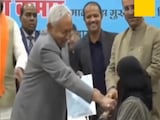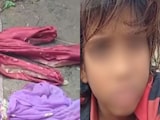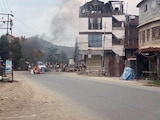The European Union is discussing sanctioning Russian President Vladimir Putin's daughters, according to people familiar with the matter, as the bloc tries to respond to the killing of Ukrainian civilians by retreating Russian soldiers.
The proposed list, which still needs to be approved by European governments and could change before that happens, also includes dozens of other individuals, including political figures, tycoons and their family members, and several propagandists.
Sanctioning Putin's daughters, Katerina and Maria, is largely a symbolic move since it's unclear they have significant assets outside of Russia, but it's designed to get the president's attention. His daughters' lives are shrouded in secrecy, they have different maiden names and the Kremlin has never confirmed the names of his daughters or released photographs of them as adults.
In 2015, Putin disclosed a few details about his daughters, including that both women graduated from Russian universities and speak multiple languages.
Maria Vorontsova, his older daughter, is a co-owner of Nomenko, which is involved in Russia's largely private investment project in health care, according to the people familiar with the matter. Katerina Tikhonova runs an artificial intelligence institute at Moscow State University.
Kremlin spokesman Dmitry Peskov said by text message that he wasn't aware of the proposal and would wait to see what is published officially.
The EU is also planning to target more than a dozen entities in the defense sector and four banks that had been cut off from the global payments system SWIFT but hadn't yet been fully sanctioned, including VTB Bank PJSC. It's also proposing a ban on Russian coal imports.
The sanctions package needs to be approved by all 27 EU members.
(This story has not been edited by NDTV staff and is auto-generated from a syndicated feed.)















